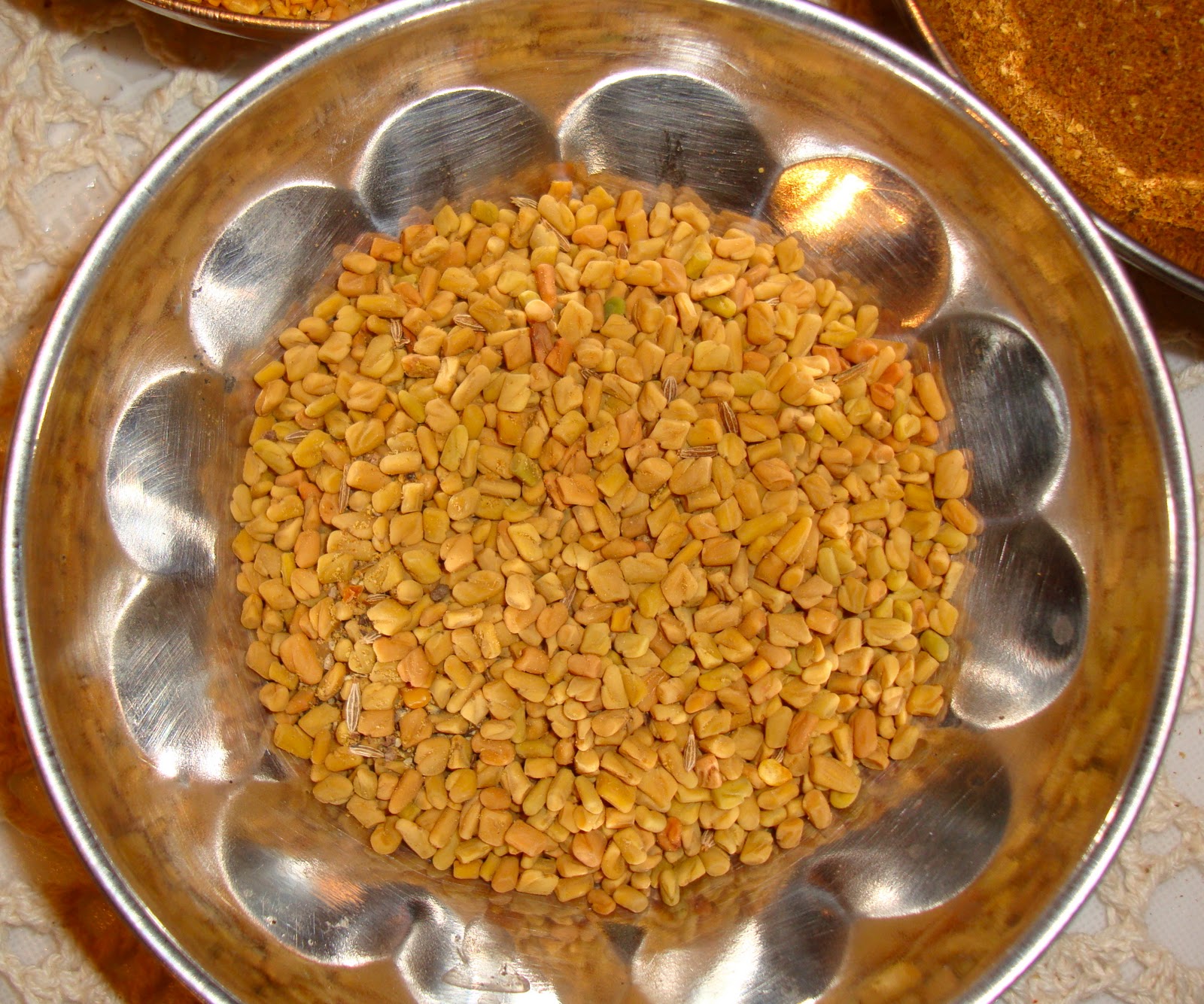Title:Botanical Name:Trigonella Foenum Graecum, Methi(Nepal)
Purpose:
Digestive disorders:
Leaves are beneficial in the treatment of indigestion, flatulence and sluggish live. Boiled and fried in butter, they alleviate biliousness. The seeds are also useful in the treatment of colic, flatulence, dysentery, diarrhoea and dyspepsia.
Anaemia:
The leaves help in blood formation. The cooked leaves help prevent anemia and run down condition in girls, usually associated with the onset of puberty and a sudden spurt on in growth. The seeds also help in recovering from anemia, being rich in iron.
Deadened senses:
The seeds help restore the deadened senses of taste or smell. The sense of taste dulls due to improper functioning of the salivary glands which often become clogged with mucus and accumulated juices, causing swelling. Similarly, the sense of smell is obstructed due to prolonged accumulations of mucus and other impurities in the nose where the olfactory nerves which is the special nerve of smell.
Fever:
Tea made from fenugreek seeds is equal in value to quinine in reducing fevers. It is particularly valuable as a cleansing and soothing drink. Seeds, when moistened with water become slightly mucilaginous, and hence the tea make from with them has the power to dissolve sticky substance like mucus.
Stomach disorders:
This tea soothes inflamed stomach and intestines, cleansing the stomach, bowels, kidney and respiratory tract of excess mucus. It is beneficial in the healing of peptic ulcers, as the mild coating of mucilaginous matter deposited by fenugreek provides a protective layer for the ulcers, when it passes through the stomach and intestines.
Respiratory infections:
During the early stages of any of the respiratory tract infections, such as bronchitis, influenza, sinusitis, catarrh and suspected pneumonia, fenugreek tea helps the body to perspire, dispel toxicity and shorten the gestation period of fever. During the treatment, no other food or nourishment should be taken, as fasting aids the body to correct these respiratory problems in a few days.
Bad breath and body odour:
The tea is also beneficial in bad breath and body odour. Unpleasant odours emanate from the body due to accumulations of hardened mucus and other toxins in the nasal and oral passages, the gastrointestinal tract, the urinary tract, the blood and the vigina. The tea taken regularly helps to remove these accumulations from these spots where mouthwash and soap can never penetrate.
According to Lelord Kordel, one of the world’s most famous nutritionist, ” so potent are the volatile oils in fenugreek and so thorough a job of cleansing do they perform, that often a decided fragrance of fenugreek seeds emanates from the pores of a person using the herb regularly. These oils seek out and penetrate the most remote crevices and creases of the membranous linings within the body cavities. The volatile oils are absorbed into the cell tissues to do their job of rejuvenating our body. Some of them finally find their way into the sweat glands to cleanse and awaken any sluggishness in these parts.
Diabetes:
Seeds and also be taken for diabetes. The normal does is 2 teaspoonfuls of powdered seeds taken daily in broth or milk. 2 seeds can also be swallowed whole, daily.
Dandruff:
Fenugreek seeds are useful in the removal of dandruff. Two tablespoonfuls of the seeds are soaked overnight in water. In the morning, the softened seeds are ground into a fine paste and applied in the scalp and left on for half an hour. The hair is then washed thoroughly with soapnut (rita nut) solution or Shikakai. A paste of the fresh leaves of fenugreek applied over the scalp regularly before washing the hair also cures dandruff.
Mouth ulcer:
The herb helps in the healing of the mouth ulcers.
Sore throat:
A gargle made from g\fenugreek seeds is best for ordinary sore throat. For the gargle, the solution should be much stronger than the tea. Two tablespoons of fenugreek seeds are put in a liter of water and allowed to simmer for half an hour over a low flame. it is cooled to room temperature and strained. the entire liquied is used as a gargle.
Leucorrhoea:
Fenugreek tea used as a douche is very effective in treating leucorrhoea. The solution is prepare in the same manner as for gargle.
Swellings:
A poultice of the leaves can be applied with advantage in external and internal swellings. It is also useful in burns due to its cooling properties.
Other uses:
Beauty aid:
A paste of the fresh leaves applied over the scalp regularly before taking bath, helps hair while preserving the natural colour and keeping the hair silky. The paste applied on the face every night before going to bed and washed with warm, prevents one from getting pimples, blackheads, and dryness of the face and early appearance of wrinkles. it also improves complexion and makes one look years younger.
Pregnancy and lactation:
The seeds fried on ghee are finely powdered, with wheat flour and sugar to prepare Halwa taken in small quantity daily, this helps in quick normalization after delivery. The seeds, made into agruel, and given to nursing mothers increases the flow of milk.
Steaming is considered the best method of cooking leaves; in this the vitamins are retained and the vegetable becomes palatable. The dried leaves can be compared to pluses for their protein content. They supplement the lysine deficient cereals diets.
Target:-
Web diary:
uploaded by Arya K.C. at FB 2018 August 14
link from wiki
